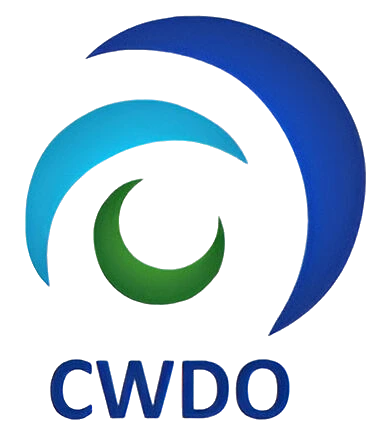2021 – 2026 | Published May 17, 2022
Introduction
- Citizens With Disabilities – Ontario (CWDO) was incorporated as a provincial not-for-profit organization on May 10, 2005.
- CWDO is non-partisan, with cross-disability focus.
- CWDO is the Ontario representative for the Council of Canadians with Disabilities (CCD). We participate in many CCD initiatives and support CCD’s pan-Canadian efforts.
- We have relied on strategic plans to guide our growth to date. This plan covers the 5-year period from January 1, 2021 until December 31, 2026.
Vision statement
Citizens With Disabilities – Ontario (CWDO) is committed to the rights of all persons to participate fully in the civil, cultural, economic, political and social life of their communities.
Mission statement
- CWDO actively promotes the rights, freedoms and responsibilities of persons with disabilities through community development, social action, and member support and referral.
- Our primary activity is public education and awareness about the social and physical barriers that prevent the full inclusion of persons with disabilities in Ontario.
Accomplishments
Accomplishments from the past 5 years.
Membership
- Membership database created; consulted with members on specific issues.
- Web conferencing and newsletter format selected for greater accessibility.
- Kept guides for people who are newly disabled up-to-date (Toronto and Ontario-wide).
- Increased youth involvement.
Research
- Developed six “Together We Are Stronger” reports on the experience of people with disabilities with employment programs.
Public profile
- Increased visibility through participation in events such as International Day of Persons with Disabilities (IDPD); Access Awareness Week.
- Increased Social Media presence.
- Increased our contact with MPs and MPPs.
Strategic alliances
- Partnership with Council of Canadians with Disabilities (CCD) through the Employment project and Empower U human rights training (incl., 10 webinars, online training course and face-to-face training in Toronto)
- Developed strategic alliances with organizations such as ARCH Disability Law Centre, Autistics for Autistics (A4A), Alliance for Equality of Blind Canadians (AEBC), Canadian Council of the Blind (CCB), Courageous Companions Inc. (by enabling their organization to hold meetings and webinars) NEADS the AODA Alliance and PharmaCare.
Advice to government
- Responded to government consultations on the AODA legislation, Accessibility Standards on Information and Communications; Elementary Secondary and Post-secondary Education; Health and banning e-scooters on public spaces.
- Responded to federal government consultation on the development of the Accessible Canada Act and revisions to Medical Assistance in Dying (MAiD) legislation.
Financial viability
- Generated revenue through participation in specific projects.
- Secured government funding for summer students.
Next five years
Goals for the next 5 years.
Membership
- Increasing connections with and among our members.
- Attracting more youth into our organization through the provision of information and webinars and by developing a stronger relationship with NEADS and other youth organizations.
- Creating new resources as needed.
- Restructuring our website to encourage more member participation and make it more user friendly.
- Increasing critical information and content on the website, through newsletters, on social media platforms and in newsletters.
Public profile
- Continue to pursue public awareness opportunities, including exhibiting at trade shows when possible.
- Making CWDO webinars available and accessible across Ontario.
- Increase social media presence.
Contribute to government legislation
- Made submissions to various levels of government when public consultation as requested and submit position papers on specific topics when possible.
- AODA review.
- Consultations with government on revisions to the current AODA regulation – the Integrated Accessibility Standards regulation.
- Input to the proposed health care and education standards.
- Review of the Accessible Canada Act.
- Revisions for MAID legislation (advanced requests, mature minors, people with mental health diagnoses only).
Financial viability
- Continue to research and pursue grant opportunities for projects and infrastructure.
- Provide opportunities to students for short-term employment,
- internships and co-op placements.
- Work towards hiring year-long staff.
- Pursue funding opportunities for CWDO to become bilingual (English and French) and to be able to provide information in ASL and LSQ.
- Stay up-to-date with relevant resources to support the organization’s goals.
Strategic alliances
- Increasing partnerships and alliances with other like-minded organizations.
- Continuing relationship with CCD.
- Continue provincial focus.
- Webinars with specific topics, collaborating through action groups on topics of interest.
Conclusion
- CWDO will continue to be a unique cross-disability organization that reflects the diverse people with disabilities who are our members.
- We will speak out for the rights of people with disabilities to have equal inclusion in all aspects of society.
- We will grow into a more active, vibrant organization, with increased membership, and with stable financial funding.
- We will provide up-to-date, relevant information and resources to people with disabilities in Ontario.
